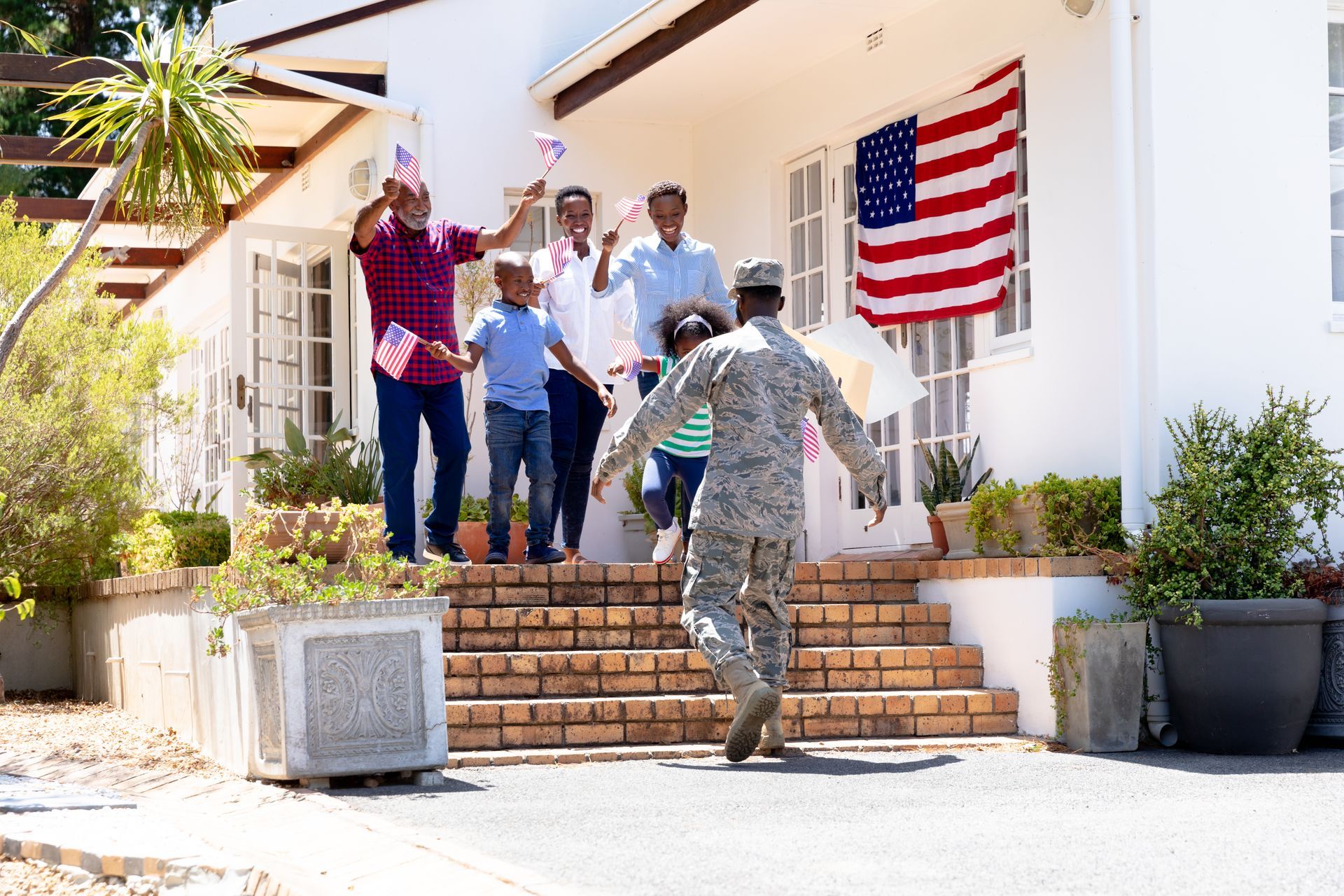How to Prepare for Deployment and Reconnect After Military Deployment as a Couple
Deployment can deeply impact a relationship. Whether it’s your first deployment or one of many, the emotional and logistical challenges for a spouse and service member alike can feel overwhelming. This article explores what couples can expect before and after a military deployment, offering strategies for maintaining a healthy relationship during separation and a strong reunion when coming home from deployment. If you want to face this challenging time with strength, understanding, and love, this guide is essential reading.
Article Outline: Preparing for and After Deployment for Couples
1. What Emotional Changes Should Couples Expect During Deployment?
2. How Can You Prepare Your Relationship Before Deployment?
3. How to Plan My Deployment: Practical Steps for Couples
4. What Role Does Communication Play When You’re Apart?
5. How to Support a Deployed Spouse Emotionally
6. What Happens When a Deployed Partner Returns Home?
7. How to Cope with Changes Since You Were Last Together
8. How Do PTSD and Other Challenges Affect Reunion?
9. How Can Couples Rebuild Intimacy After Deployment?
10. Where Can Military Families Find Support After Deployment?
What Emotional Changes Should Couples Expect During Deployment?
During deployment, emotional shifts are inevitable. Both the spouse and the service member may experience anxiety, loneliness, frustration, or even guilt. Understanding that these feelings are normal can help couples manage expectations.
The emotional impact often intensifies during the pre-deployment stage, as the countdown to deploy becomes real. Some couples grow closer under pressure, while others may feel strained. Recognizing that deployment alters the emotional dynamic, even temporarily, can help couples approach the situation with greater resilience.
Throughout military deployment, relationships may also experience periods of emotional withdrawal or intense longing. Setting realistic expectations helps both partners avoid unnecessary conflict during a challenging time.
How Can You Prepare Your Relationship Before Deployment?
One of the best ways to protect your relationship is to proactively strengthen it before a deployment. Focus on clear communication, emotional connection, and practical planning.
Discuss your love language, a concept developed by Gary Chapman, to better understand how to meet each other's emotional needs while you're apart. Identifying these preferences now will help you maintain emotional closeness during the deployment.
Also, establish routines for staying connected, whether you plan to write letters, video chat, or send care packages. The stronger your foundation before deployment, the easier it will be to withstand the distance
How to Plan My Deployment: Practical Steps for Couples
When it comes to managing a military deployment, organization is key. Start by reviewing important documents such as wills, powers of attorney, and insurance policies.
Ensure that childcare, household responsibilities, and financial matters are clearly delegated. Setting up a plan for emergencies can help both the service member and spouse feel confident when deployments separate them.
Don’t forget emotional preparation, too. Visit a family support center or talk with a chaplain for resources that can help you keep your relationship strong during this major life event.
What Role Does Communication Play When You’re Apart?
Communication is the lifeline of any relationship during deployment. But expectations must be realistic. Sometimes, the service member may not be able to call or message as often as desired, due to operational security or unpredictable schedules.
Plan ahead by discussing how you’ll stay in touch. Agree on communication methods, whether email, calls, or mailed letters, before deployments begin. Remember that sometimes brief but heartfelt messages can mean more than long conversations.
When you’re apart, consistency in communication builds trust and keeps emotional bonds alive, even if the time difference or duties during tdy (temporary duty assignment) make regular contact challenging.
How to Support a Deployed Spouse Emotionally
Supporting a deployed spouse requires understanding, patience, and creativity. Recognize that they’re under immense pressure and might not always communicate their feelings openly.
Little acts of love, sending small packages, meaningful notes, or even coordinated playlists, can go a long way toward boosting their morale. Stay positive in your communications to help you keep the emotional connection strong.
If you’re the one at the home front, find healthy ways to manage your own emotions, too. Lean on friends, family, and military families support groups for help. Caring for yourself makes you stronger support for your partner.
What Happens When a Deployed Partner Returns Home?
Home from deployment sounds like a dream, but reunion can also be complicated. Both partners have changed in subtle or profound ways while apart. It’s normal for there to be a period of adjustment.
Remember that service members may need time to decompress, especially after a high-stress military deployment. Likewise, the spouse at home has developed routines and independence.
The first few weeks after returned home should be treated with patience and openness. Avoid overwhelming your partner with tasks or expectations. Focus instead on rebuilding emotional connection and celebrating small wins.
How to Cope with Changes Since You Were Last Together
Since you were last together, many changes may have occurred: new friends, new habits, even new career developments. Some couples struggle because they expect everything to snap back to "normal" instantly after a deployment.
It's important to acknowledge that both partners have grown. Share your experiences honestly, listen actively, and create space for both joy and grief over what has changed.
Setting personal goals together for your next chapter can be a beautiful way to navigate these changes. A new shared vision brings hope and excitement to the post-deployment life.
How Do PTSD and Other Challenges Affect Reunion?
Unfortunately, not all wounds from deployment are visible. PTSD (Post-Traumatic Stress Disorder) is a reality for many service members. Emotional numbness, hypervigilance, irritability, and withdrawal can all impact a relationship after deployment.
Recognize that seeking professional help is a sign of strength, not weakness. Counseling, therapy, or speaking with a chaplain or family support center can make a big difference.
If your spouse shows signs of PTSD or other emotional difficulties after deployment, be patient, offer support, and encourage treatment. Building a healthy relationship post-deployment sometimes requires external help, and that’s okay.
How Can Couples Rebuild Intimacy After Deployment?
Physical and emotional intimacy may need time to redevelop after a military deployment. Even couples deeply in love can find reunion surprisingly awkward.
Start with small, low-pressure gestures, holding hands, sitting close, spending quality time together. Pay attention to each other’s love language to reconnect on a deeper level.
Be open about your needs and patient with one another. Rebuilding intimacy is not just about physical closeness but emotional trust. Celebrate each step forward, however small, as you move through this important post-deployment phase.
Where Can Military Families Find Support After Deployment?
There are many resources available to military families navigating the aftermath of deployment. Family Readiness Groups (FRGs), military OneSource, and the local family support center offer workshops, counseling, and community events designed to strengthen families.
Sometimes, just knowing you are not alone can make all the difference. Support groups and forums for spouses of deployed service members provide emotional solidarity and practical advice.
Remember, reaching out for help isn’t a sign of failure, it’s a way to ensure that your marital bond not only survives deployment, but thrives after it
Key Takeaways: How Couples Can Thrive Through Deployment
- Deployment changes a relationship, but preparation, communication, and compassion make a huge difference.
- Expect emotional shifts during pre-deployment, deployment, and reunion stages.
- Discuss your love language and create a strong communication plan before you deploy.
- Taking practical steps like organizing finances and childcare helps reduce stress.
- Short, meaningful communication beats long gaps when you’re apart.
- Military families benefit from using family support center resources.
- Post-deployment adjustments are normal, patience and empathy are key.
- PTSD and emotional trauma can affect service members; getting help early matters.
- Rebuilding intimacy after deployment takes time, understanding, and small gestures.
- Support networks and counseling services are available and highly recommended.
SHARE THIS POST:
Megan Randall, LCSW, EMDR Certified
Founder of Frontline Counseling
I’m Megan Randall, LCSW, and I’m here to help you navigate these challenges, rebuild your life, and regain clarity and strength. As a trauma specialist, I’m passionate in helping my clients overcome the emotional and psychological effects of their painful experiences.
Helpful Articles
Our Recent Post



